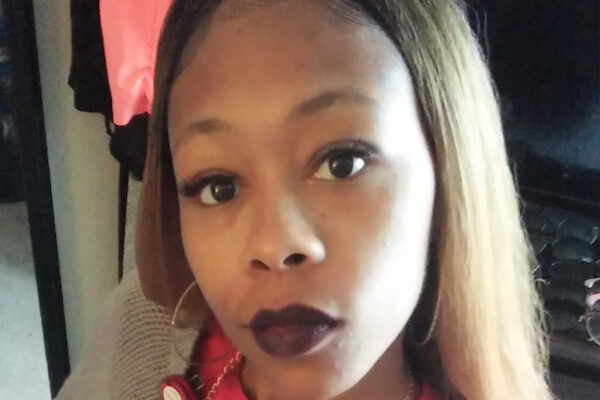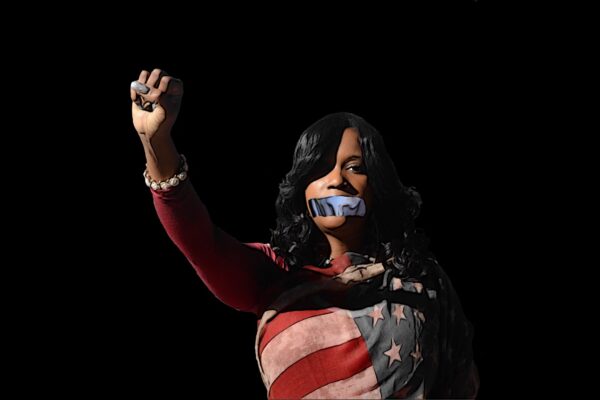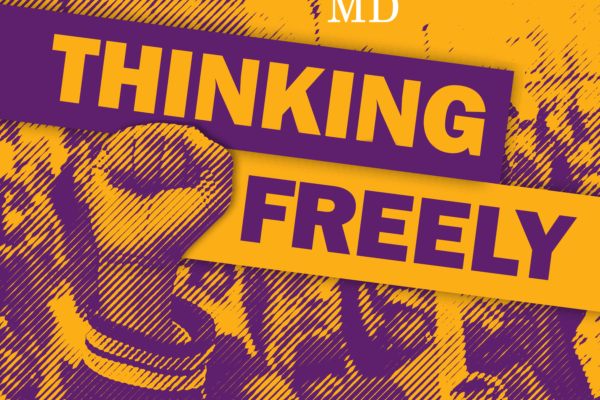“Transparency and Oversight in Claims and Litigation”
Ordinance Will Be Presented at 5 pm on July 22
BALTIMORE – In the wake of a major victory in the Overbey v. Mayor of Baltimore case, in which the United States Court of Appeals concluded that Baltimore City’s practice of requiring non-disclosure agreements, or “gag orders” in settlement agreements violates the First Amendment, Council President Brandon M. Scott and Councilwoman Shannon Sneed (District 13) will introduce a bill today to end the practice. The Coalition for Justice for Tyrone West, Not Without Black Women, Runners 4 Justice, and the ACLU of Maryland strongly support the legislation.
“It would kill me not to speak about what happened to my brother,” said Tawanda Jones, whose brother, Tyrone West, was killed by officers from Morgan State University Police and the Baltimore Police Department. “My brother was pepper sprayed, kicked, tased, and maced. The killer cop and the private police officer from Morgan sat his 315-pound body on an unarmed man, that was screaming and dying, with his foot on my brother’s neck.”
The ordinance, titled the “Transparency and Oversight in Claims and Litigation,” will be introduced today at 5 pm. The ordinance would make these gag orders illegal to use when settling cases of police misconduct or any kind of unlawful discrimination by the City of Baltimore. These “gag orders” silence survivors of police brutality, and all victims of illegal discrimination at issue in ligitation with the city, which has mostly affected the freedom of speech of Black and Brown residents in Baltimore.
After Tyrone West was killed by Baltimore and Morgan State police officers, City lawyers demanded gag orders from his family members as a condition of settling their civil case. Jones refused to be silenced about the murder of her brother, and thus dropped out of the case.
“Our pain is real,” said Jones. “Tyrone’s killing changed our whole family’s life forever, in a blink of an eye. It devastated us.”
While Jones did not sign the gag order, many families in Baltimore, majority Black and experiencing poverty, have little choice but to agree to gag orders as a condition of achieving some measure of justice for their lost loved ones. This requirement can be seen as part of a long history in the U.S. of silencing Black and Brown people, especially Black women, who have been abused at the hands of law enforcement. It is an urgent free speech issue when voices from impacted communities are deliberately silenced.
Brittany T. Oliver, Founding Director of Not Without Black Women, said: “As a civil and women's rights activist who has been fighting gender discrimination for years, I am proud that the Baltimore City Council measure goes beyond police misconduct claims, prohibiting the use of these so-called ‘gag orders’ in illegal discrimination cases, which can include allegations of sexual misconduct or ‘Me Too’ cases. It is critical for Baltimore City to send a strong message to the community, especially survivors, that gender violence is real and perpetuators will be held accountable. My job is to remind our communities and larger society that rape culture is also a very serious issue regarding police abuse and brutality cases and that is why I will always remain vigilant."
Gretchen Tome, from Runners4Justice, said: “I am proud to be a part of the coalition and of the work we’ve done to push Baltimore forward. Ending the practice of gag orders is crucial to empowering survivors so that they can tell their stories and organize for change.”
Overbey v. Mayor of Baltimore was brought by Ashley Overbey Underwood, who called the Baltimore City Police Department for help, reporting a burglary at her apartment, and was then brutalized by Baltimore police. Also challenging the gag orders is the Baltimore Brew, an online news organization denied their First Amendment and statutory right to obtain newsworthy public information from survivors of police abuses.
As a condition of settling her police misconduct lawsuit, the City demanded that Ms. Overbey to agree to a gag order that silenced her from talking publicly about her experience. She was then victimized again when the City’s lawyers withheld half of her settlement because she defended herself in the comments to a Baltimore Sun article where members of the public disparaged her for suing the police and accepting a settlement, based on the City’s Solicitor’s characterization of her claims.
Executive Director of the ACLU of Maryland, Dana Vickers Shelley, said: “We are coming together to re-imagine a First Amendment that belongs to all residents of Baltimore. This must include Black and Brown residents, who are too often racially profiled and brutalized by police. We need their voices, their advocacy, their vision for a more positive, productive public safety that truly protects all residents.”
The federal appeals court ruled that the City’s gag orders violate the First Amendment and held that they equate to the payment of “hush money” to keep victims quiet. The proposed ordinance that will effectively eliminate non-disclosure agreements in settlements for police misconduct and unlawful discrimination against Baltimore City.
###
Related Content
Sep 22, 2020

Federal Court Orders Baltimore City to Pay Damages to Woman Whose Police Misconduct Settlement the City Stole Under Unconstitutional Gag Order
Sep 18, 2019

ACLU Comment on Baltimore City Decision to Allow Police Abuse Survivors for Speak at Board of Estimates Hearings
Aug 23, 2019

New Thinking Freely Podcast Episode “Let Baltimore Speak: The Fight Against Gag Orders” from the ACLU of Maryland
Issue Areas:
Police Practices
Stay Informed
Sign up to be the first to hear about how to take action.
By completing this form, I agree to receive occasional emails per the terms of the ACLU’s privacy statement.
By completing this form, I agree to receive occasional emails per the terms of the ACLU’s privacy statement.

